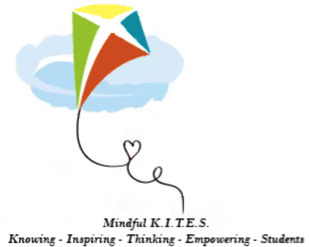
When kids are stressed, they ruminate about past problems and worry about future what-ifs. These negative thought patterns rob their ability to focus on the present. Because stress feeds anxiety, impulsive behavior and lack of focus, more schools are adopting simple mindfulness techniques that parents can also foster.
Why are kids stressed?
Academic pressures, overstuffed schedules, unstable home life, economic hardship, social media and peer issues can all affect a student’s physical and mental health.
According to the Center on the Developing Child at Harvard University, prolonged stress not only harms healthy development, it interferes with learning, behavior and health throughout life.
Mindfulness is not a control mechanism or behavioral modification. It can be a calming technique, but not always. It’s more of helping a child become actively aware of how they are feeling and using some of their tools to manage those feelings.
Mindfulness gives children–and adults–simple strategies to intentionally and without judgement notice what they’re feeling in the moment, observe their surroundings and self-regulate their behavior.
Below are a few tips for students preparing for exams:
Practical Mindfulness Strategies for Students
Get the practical side of things sorted by creating a comfortable study space, setting goals, prioritising tasks, and uni-tasking:
- Have a nice space to study. First and foremost, make sure your study space is comfortable, quiet, tidy, and well-lit. Keep your desk organised, and keep away from distractions such as a TV, phones, people talking, etc.
- Set goals. Set short, mid, and long-term goals to determine exactly what is that you need to achieve and by when. Goal setting can help with motivation by giving you something tangible to work towards.
- Write Lists. Write a ‘To Do’ list of the tasks that you need to do, in the order you need to do them, for each goal. Your lists might be for the day, the week, the month, or longer, depending on what you need to complete.
- Work through one task at a time. Many of us attempt to multi-task in the hope of getting things done more quickly, but multi-tasking is actually an illusion! While we believe we’re doing two things at once, we are in reality switching between two tasks, and in doing so, wasting time and energy to focus and then re-focus our attention.
- Put Technology Away and Take a ‘Brain Break.’ Turn off your phone, disable notifications on social media and close down your computer. Give yourself 5 minutes to enjoy something other than simply finishing your study or an exam.
Physical & Emotional Mindfulness Strategies for Students
Manage the physical and emotional sides of things by keeping calm, keeping active, and eating and sleeping well:
- Mindfulness. Mindfulness is a state of being where you are in the present moment, observing whatever you happen to be experiencing at that time with an attitude of openness and curiosity and without judging or trying to change your experience. In this way, we are able to step back from difficult emotions such as anxiety or stress rather than get caught up and carried away in them.
- Meditate. Your mind is absorbing so much information during this busy time. Try a Smiling Mind meditation the night before and the morning of each exam, just 5 minutes will give your brain a break and refresh your mind and can help increase your performance on the day of the exam.
- Get active. As well as helping your bones and muscles become stronger and building a healthy heart, physical activity plays an important role in developing the brain and supporting essential mental functions. Also, the endorphins that the brain releases during exercise help to improve your mood, energy levels and even sleep!
- Drink water & eat healthy. To keep your brain functioning at its peak, ensure that you are eating well, and drinking plenty of water.
- Get plenty of sleep. Ensuring that you are sleeping well can improve your mood, concentration and academic performance. Conversely, lack of sleep can make you feel down or irritable. For teens, the recommended number of hours of sleep per night is 8 to 10 hours. Even during exam time! Try one of the Smiling Mind sleep meditations.
Signs Your Child Might Be Stressed
- Unusual mood swings, behavior changes
- Withdrawal from social groups or activities they’ve historically enjoyed
- Poor health
- Weight gain/weight loss
- Difficulty concentrating
- Changes in sleep patterns
Teaching mindfulness gives students the crucial tools to deal with the pressures of life. It’s an approach that has a tangible effect on young people’s behaviour and wellbeing. The ability to be able to step back, reflect thoughtfully and truly focus is a skill that can help students deal with stress and pressure, both in and out of the classroom.
Long term, practising mindfulness cultivates a greater sense of perspective, within the school gates and beyond. It helps young people to develop a more considered thought process, rather than just ‘reacting’ to situations. We believe it makes complete sense to incorporate it into school life, and beyond, so students can draw upon it whenever they wish to.
